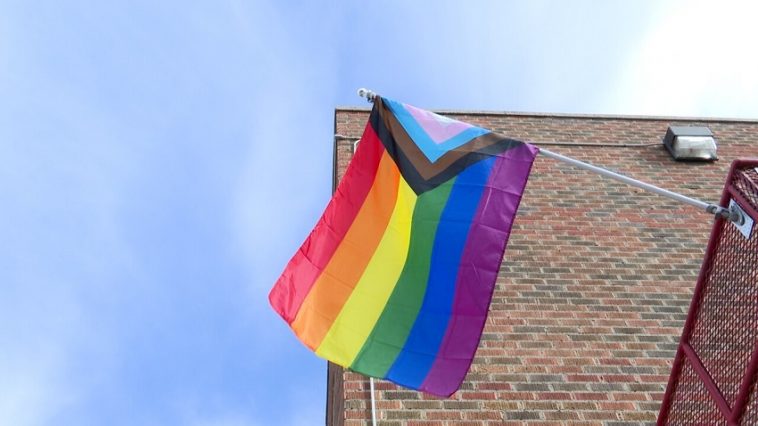MISSOULA, Mont. — In a move that directly challenges recent state legislation, the Missoula City Council voted Monday night to adopt the Pride flag as an official city flag, allowing it to be displayed in schools and government buildings despite Montana’s new law banning such displays.
Montana House Bill 819, passed earlier this year, sought to prohibit Pride flags from being flown in schools and government buildings statewide. However, the law includes an exception permitting official municipal flags to be displayed in these public spaces. Seizing on this provision, Missoula city leaders passed a resolution designating the Pride flag as an official city flag, effectively circumventing the ban.
The council’s decision drew mixed reactions across the political spectrum. Governor Greg Gianforte sharply criticized the move, accusing the council of prioritizing the flag issue over pressing city concerns. In a statement released Tuesday, Gianforte wrote, “Nine members of the Missoula City Council made clear their top priority is flying a divisive pride flag over government buildings and schools — all while ignoring the city’s housing affordability crisis, raising taxes by 17% because of overspending, and refusing to take firm action to end encampments in the city.”
Two council members, Bob Campbell and Sandra Vasecka, opposed the resolution but emphasized their votes were not intended to take a political stance. Campbell stated, “I don’t think it’s government’s place to dictate a symbology at a governmental level for any one particular issue, any particular one social subset.” Vasecka echoed this sentiment, adding that official city flags should remain neutral and avoid taking sides on politically charged symbols, such as the Pride flag, the thin blue line flag, or the Black Lives Matter flag.
Supporters of the resolution, including council members Mirtha Becerra and Jennifer Savage, who sponsored the measure, argued that the state law singled out the LGBTQ+ community. “I believe that the bill that the state legislature passed leaves a lot of room for interpretation, but it’s clearly targeting one group of individuals,” Becerra said.
Savage, a mother of a queer child, described the resolution as deeply personal. “Queer visibility is always urgent for me,” she said. “In consultation with colleagues, we reviewed similar actions in Boise and Salt Lake City and crafted a resolution that would uphold inclusion and respect.”
Council member Daniel Carlino, who also voted in favor, underscored the importance of local autonomy. “Governor Gianforte should know that Montana is a live and let be state, and we do not support government overreach into deciding what flags can or cannot be flown,” Carlino said.
Missoula Mayor Andrea Davis framed the council’s resolution as a response to the legislature’s selective flag policy, which she said alienated marginalized communities. “They chose some flags that were allowable by statute and then specifically alienated other parts of the community that felt marginalized and in danger after that decision,” Davis said.
The law’s sponsor, Braxton Mitchell, a Republican representative from Columbia Falls, has already indicated the legislature will revisit the Missoula City Council’s action during the 2027 session.
As this debate unfolds, Missoula’s decision underscores the ongoing tensions between state authority and local governments over issues of symbolism, identity, and political expression in public spaces.



